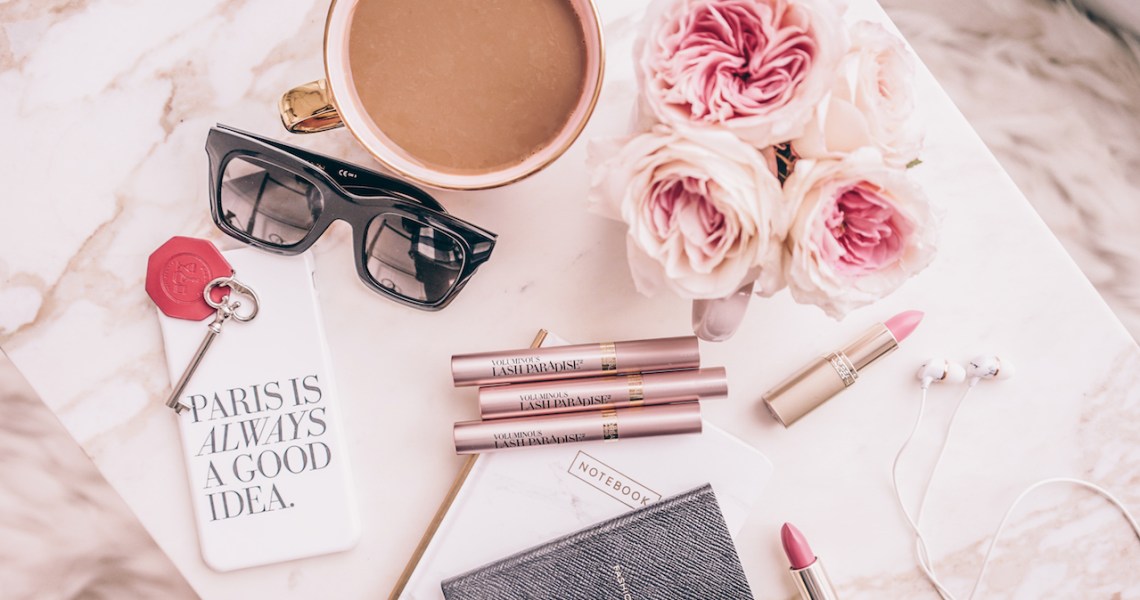L’Oréal Paris is the latest brand to go after Gen Z and millennial shoppers with an influencer-minded approach.
On February 13, the cosmetics company unveiled a pack of five filters with photo-editing tool Adobe Lightroom on its site, LorealParisUSA.com. To promote L’Oréal Paris’s best-selling Voluminous Lash Paradise Mascara, the rose-colored photo filters are meant to mimic the color of the product’s packaging.
By testing this, L’Oréal Paris becomes the first beauty company to create its own branded filters for shoppers outside of a social platform. L’Oréal previously launched custom filters through its acquisition of Modiface on Facebook with NYX Cosmetics in 2018, and Kylie Jenner created Kylie Cosmetics lipstick colors for Instagram — Jenner’s custom face filter crossed 1 billion impressions after four weeks, according to Instagram.
“We are always looking for new and innovative ways to engage our consumers with the brand. We know Lightroom filter packs are growing in popularity. Creating custom filters felt like the perfect way to tap into this phenomenon, but offer it on our very own site,” said Vivianna Blanch, L’Oréal Paris vice president of integrated consumer communications.
The trend of custom Lightroom filter packs began with influencers themselves, like lifestyle blogger Maddy Corbin, who has nearly 41,000 followers on Instagram and sells her filter packages for $25 to $200. (As the filters are sold on MaddyCorbin.com, Cobin receives a 100 percent of sales.) Corbin told The Atlantic it as a way to connect with her fans directly and also offer something unique from existing Instagram or Facetune filters. Cosmetics brands, on the other hand, have yet to see the opportunity for both social awareness and incremental revenue.
To distinguish itself from what is offered by the influencer set, L’Oréal Paris has made its filter pack free and is not directly linking its Voluminous Lash Paradise Mascara to the filters on the site. “This isn’t a conversion exercise for us; we wanted to generate awareness and create something playful for our shoppers,” said Blanch. “We wanted the filters to have the same feel as the mascara with the rose gold coloring, but not be directly related.”
Still, Blanch reported that since L’Oréal Paris debuted its Voluminous Lash Paradise Mascara in the second half of 2017, it has become the No. 1 mass cosmetics mascara launch that year, per Nielsen data, and continues to sell at a rate of one tube every five seconds. Clearly, the brand is hoping its preset filters will have a larger halo effect.
However as Andy McCune, co-founder and COO of design company Unfold said, “With every moment like this, the big challenge is converting attention into brand equity. When you’re designing a branded product for widespread use, it’s always a balance. If it’s too branded, people won’t use it. If it’s not branded enough, it won’t drive results.”
L’Oréal Paris is ranked second in the U.S. in the eye makeup category to L’Oréal Group’s sister brand Maybelline, according to market research firm Euromonitor International. Maybelline has been savvy with its Gen Z and millennial marketing and social approaches, from limited-edition drops to its recent Puma collaboration, which tapped influencers beyond beauty, including those from the dance and active worlds. Even Coty’s Rimmel updated its influencer strategy around its Scandaleyes Mascara and Wonder Ombre Holographic Eyeliner in 2018 by using unpaid influencers. From leaning into these beauty enthusiasts and their respective audiences and content, Rimmel saw a 69 percent higher sales lift for all Rimmel eyeliners and mascaras post a trial period.
For L’Oréal Paris’ part, up to seven contracted influencers will be activating on social for the Voluminous Lash Paradise Mascara filters. That includes makeup artist-turned-vlogger Militza Yovanka, who has 1 million Instagram followers, and style and beauty blogger Ellen V Lora, with 448,000 Instagram followers. Neither influencer sells their own filter packs on their respective sites, so there appears to be no conflict among the influencers and the cosmetics company. L’Oréal Paris would not disclose the financial terms of the above influencer obligations.
For now, L’Oréal Paris is the only L’Oréal USA brand to trial these filters, but Blanch expects to see more innovation from fellow companies within the portfolio to drive social engagement. “For those that may not know about our product, it’s a fun way for them to find out,” she said. “We see social media overlays as a way for our consumers to experiment and come to us for innovation.”




